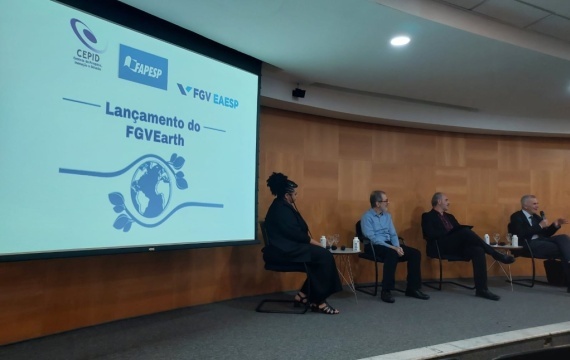Fundação Getulio Vargas Launches FGV Earth to Tackle Global Environmental Challenges
On September 11, Fundação Getulio Vargas officially launched FGV Earth – Center for Innovation, Research and Dissemination (CEPID) in Governance of Global Environmental Changes, during a ceremony held in the Noble Hall of the São Paulo School of Business Administration (FGV EAESP). Funded by the São Paulo Research Foundation (FAPESP), the center’s mission is to develop practical solutions grounded in scientific evidence to address the environmental challenges facing the planet.
Coordinated by researcher José Antônio Puppim, FGV Earth is structured around six thematic research groups: Institutions for Innovation, Business Practices, Global Environmental Change Economics, Marketing and Consumer Behavior, Leadership, and Cities. The goal is to understand how to build institutions and capacities that address the social drivers of environmental problems, especially in developing countries like Brazil.
During the event, the coordinators of each research group presented their lines of inquiry.
Professor Susana Pereira, coordinator of the Institutions for Innovation group, highlighted the study of interactions between public policies, technological systems, and market dynamics to foster scalable and sustainable solutions.
Professor Ely Paiva, head of the Business Practices group, presented initiatives aimed at promoting corporate strategies that reconcile competitiveness and sustainability in developing countries.
Representing the Global Environmental Change, Metrics, and Regulation group, Guilherme Bastos, coordinator of the Agribusiness Studies Center (FGV Agro), discussed the development of legal frameworks for low-carbon markets and the bioeconomy, as well as the implementation of greenhouse gas monitoring centers and socio-environmental impact assessments.
Professor Delane Botelho, leading the Marketing and Consumer Behavior group, explained that their research focuses on sustainable consumption practices, such as degrowth, product durability, and the influence of children on family consumption habits.
Professor Jorge Carneiro presented the Leadership group, which develops tools to integrate climate governance into organizational strategies. This research agenda includes topics such as regenerative leadership, multisectoral cooperation, and community governance.
Finally, the Cities group, led by Professor José Antônio Puppim, analyzes the role of cities and local governments in addressing global environmental challenges, promoting solutions that connect local and international spheres.
Importance of Research Funding and the COP30 Agenda
Luiz Nunes de Oliveira, coordinator of FAPESP’s CEPID program, emphasized that while other research centers also study climate change-related topics, FGV Earth stands out for its unique approach. According to him, the program deeply investigates specific aspects such as the interaction between businesses, consumers, and suppliers, and how these dynamics can help address environmental challenges. Moreover, FGV Earth expands this analysis to larger scales, considering impacts on cities and the global context.
During the event’s opening, FGV representatives reinforced the strategic role of scientific research in building sustainable solutions.
Tales Andreassi, Deputy Director of FGV EAESP, highlighted the importance of support from funding institutions like FAPESP in developing initiatives such as FGV Earth.
Thomaz Wood, Coordinator of GV Pesquisa, emphasized the relevance of sustainability to FGV’s mission:
“Today, our largest research center at FGV EAESP is the Center for Sustainability Studies (FGVces), and our biggest project now is FGV Earth—both focused on sustainability.”
Wood reiterated the importance of FAPESP’s support, which has significantly boosted FGV EAESP’s research output. He added:
“We value not only the dissemination of research but also studies that are applied and developed in collaboration with managers and policymakers, generating real benefits for society and all stakeholders involved.”
Tamara Marques, FGV’s Coordinator of International Partnerships, noted that the institution’s mission is directly linked to sustainability and socioeconomic development. She introduced the Research and Innovation Network as a tool to connect researchers across disciplines and countries, and emphasized the importance of COP30 as a milestone for FGV to map and integrate its sustainability initiatives into a collaborative platform, expanding the reach and relevance of its research.
Learn more at: Center for Innovation, Research and Diffusion (CEPID) of Governance of Global Environmental Changes | FGV EAESP
